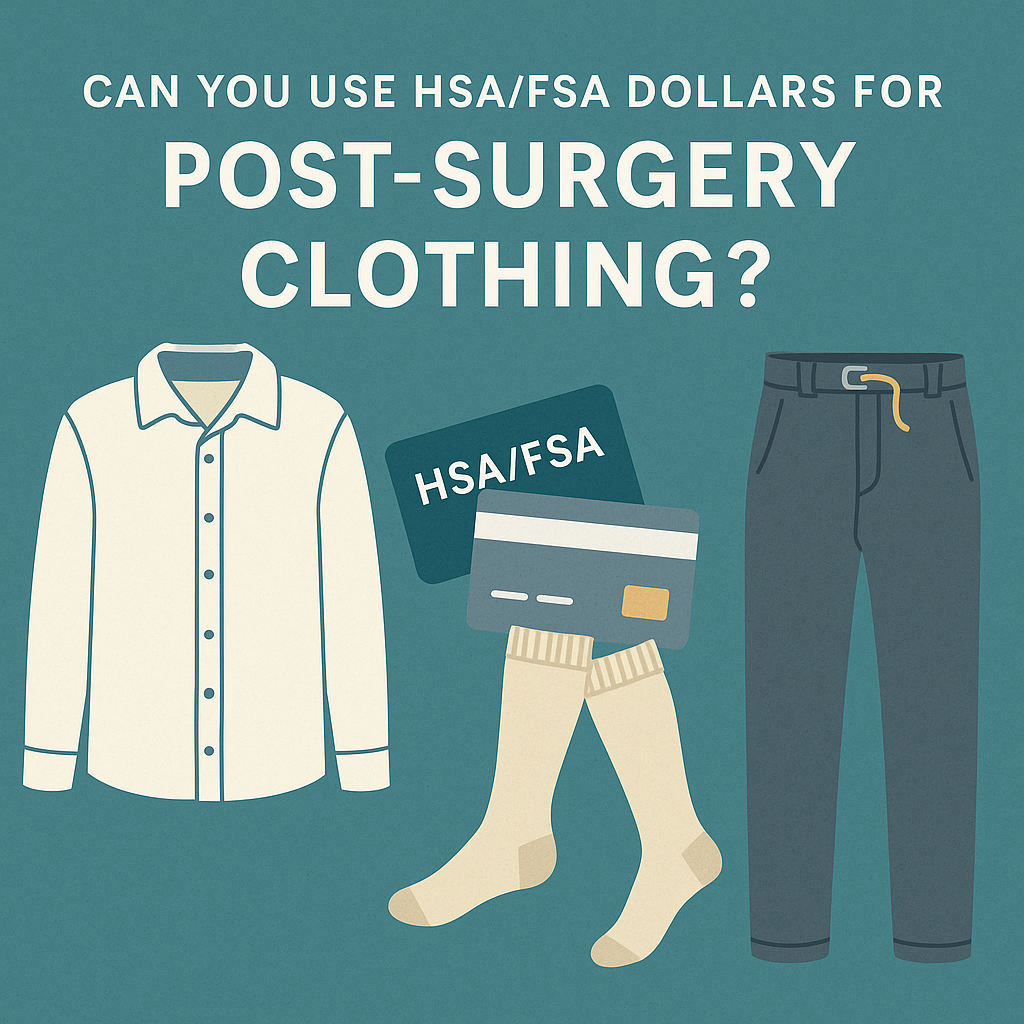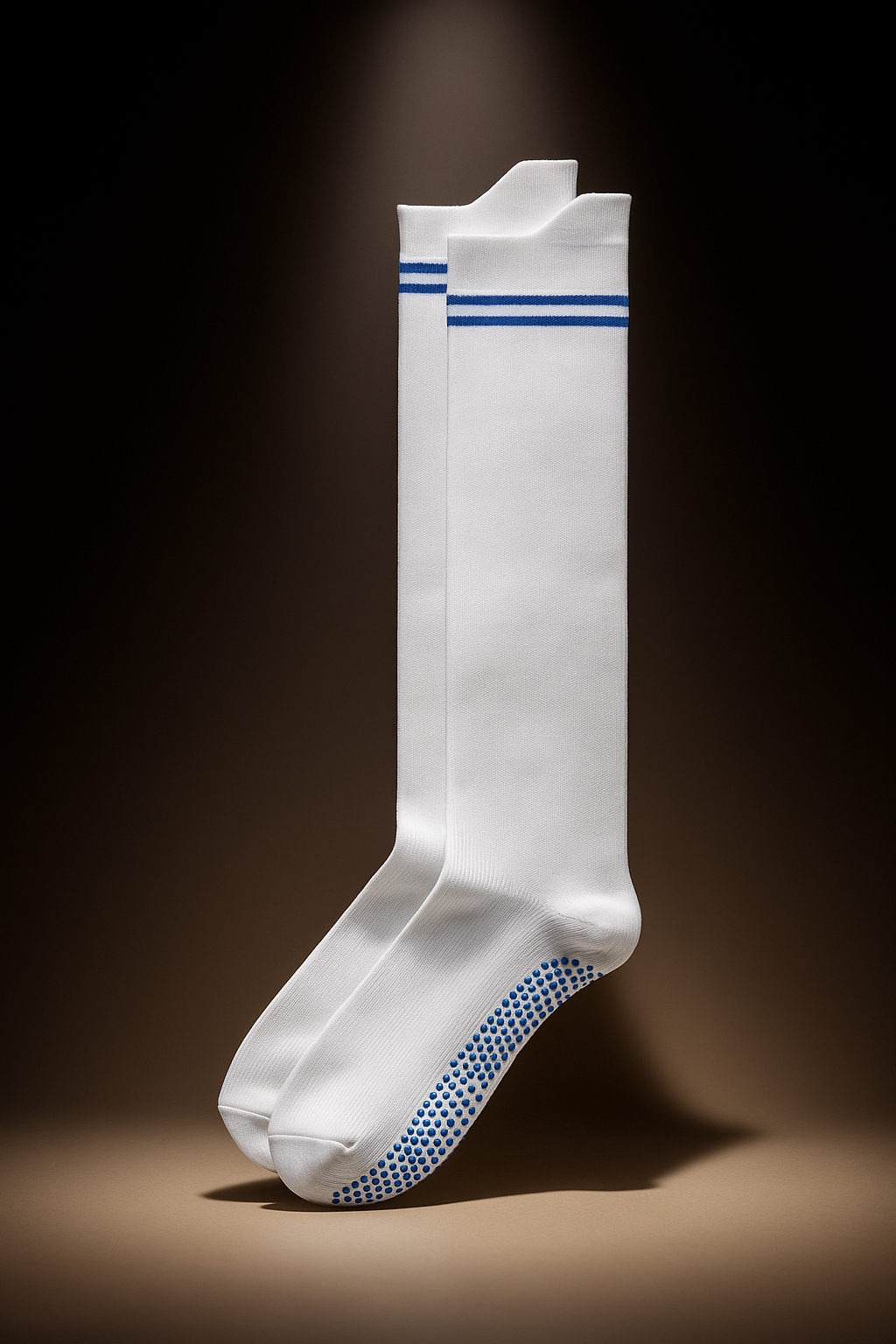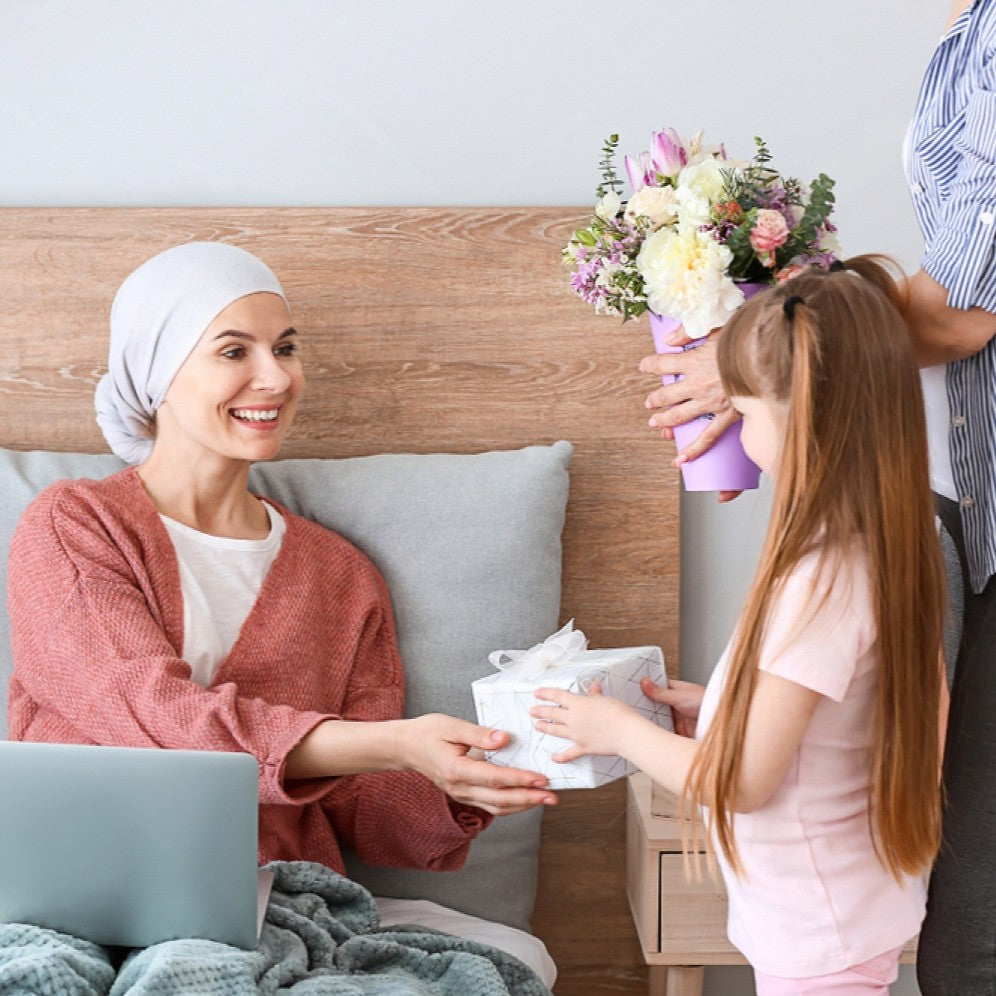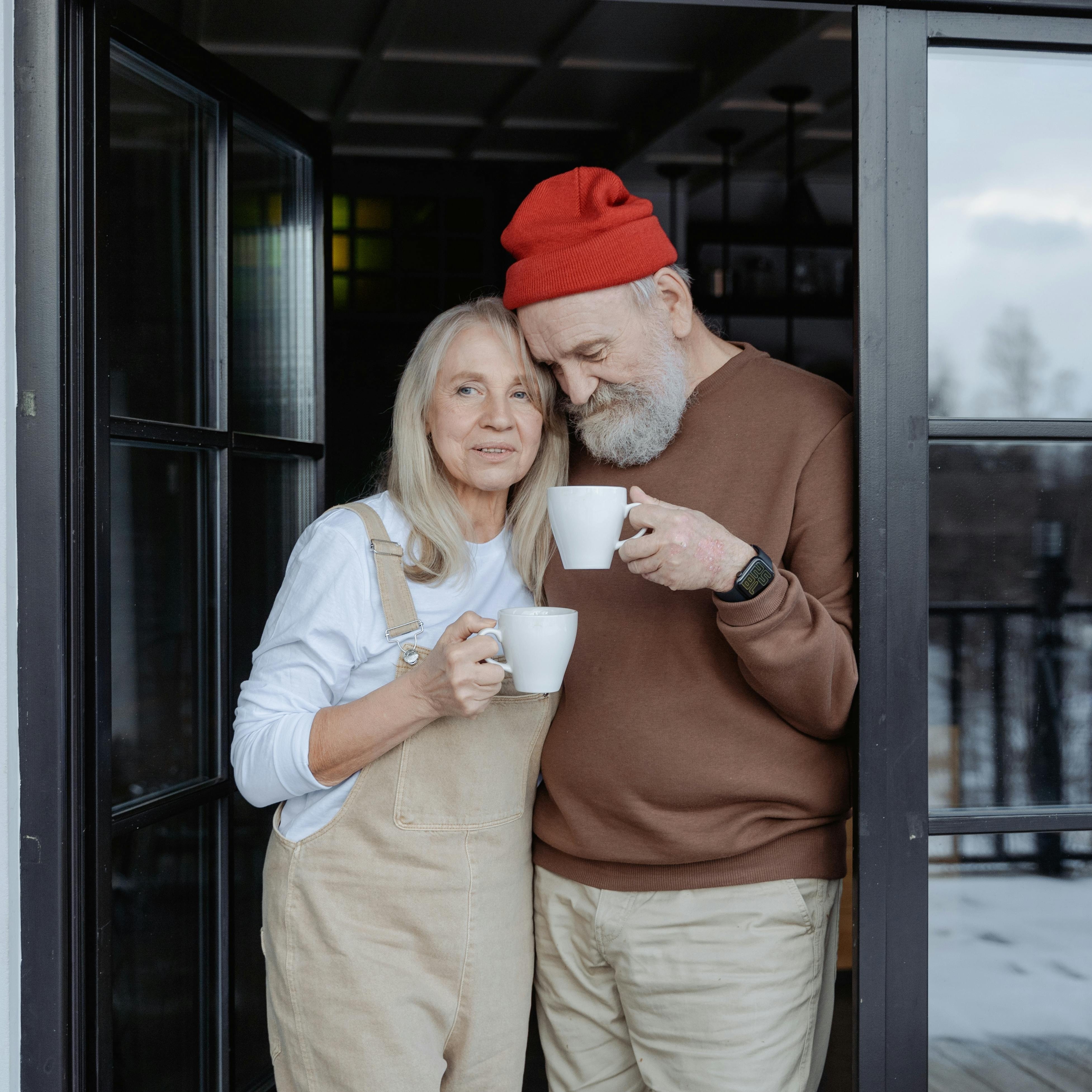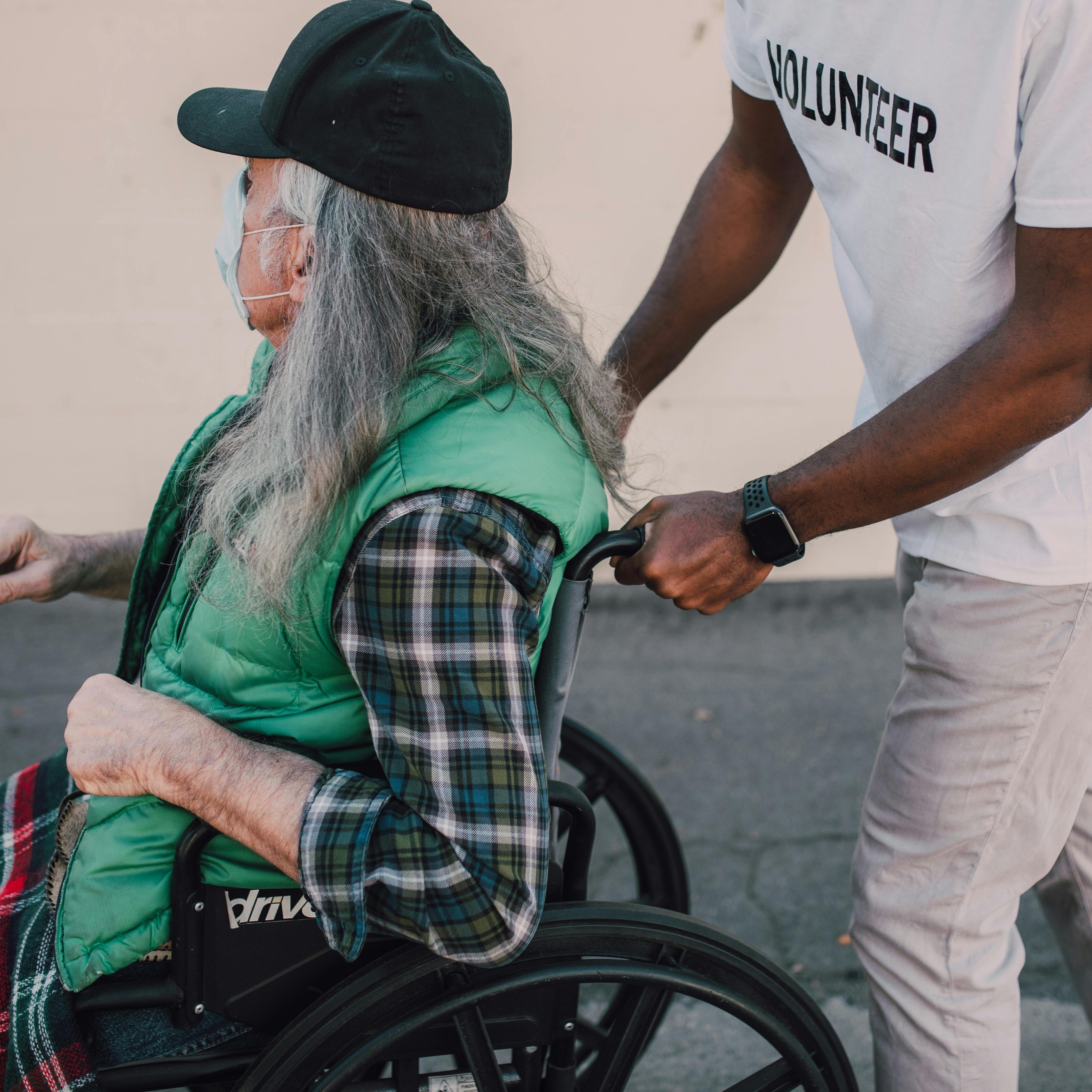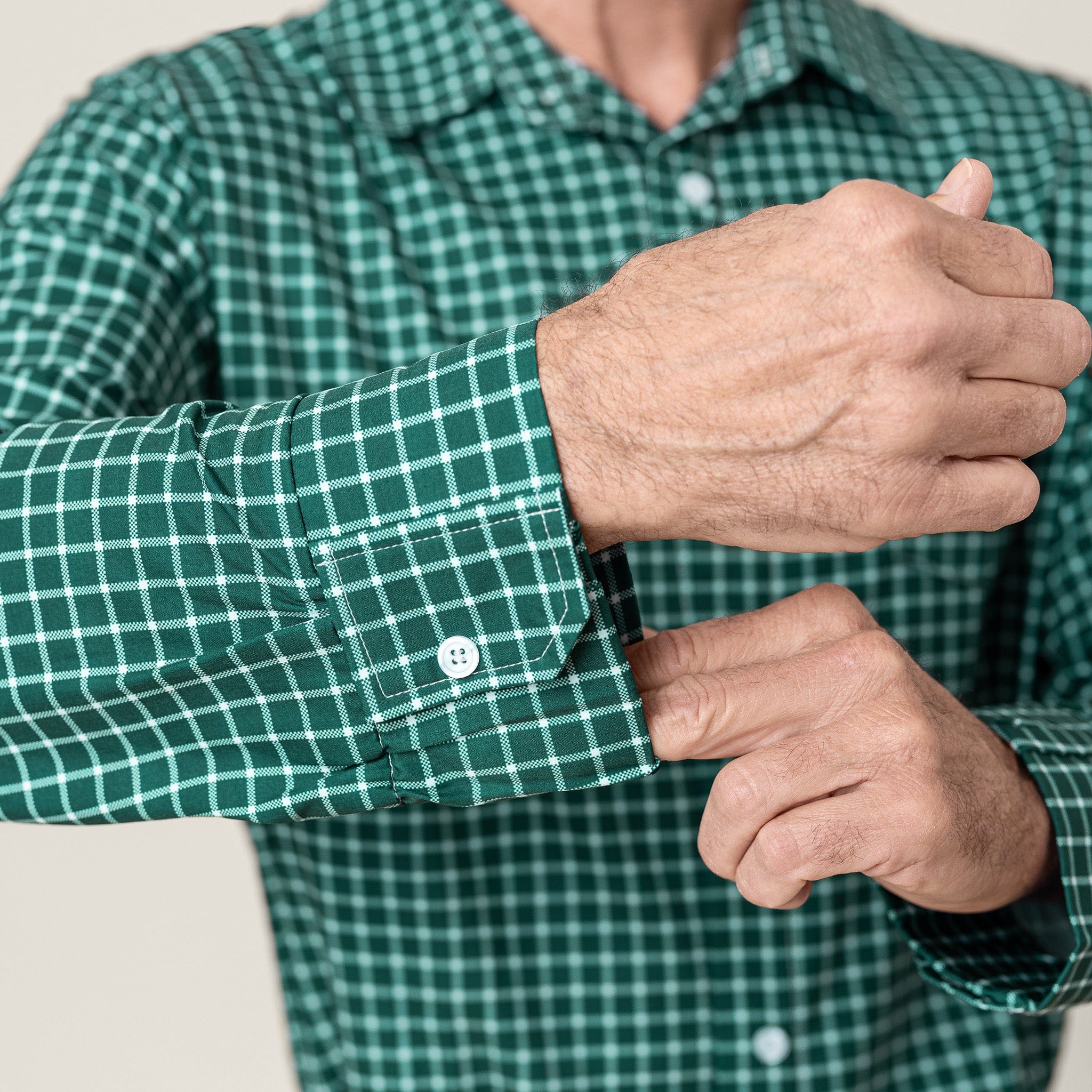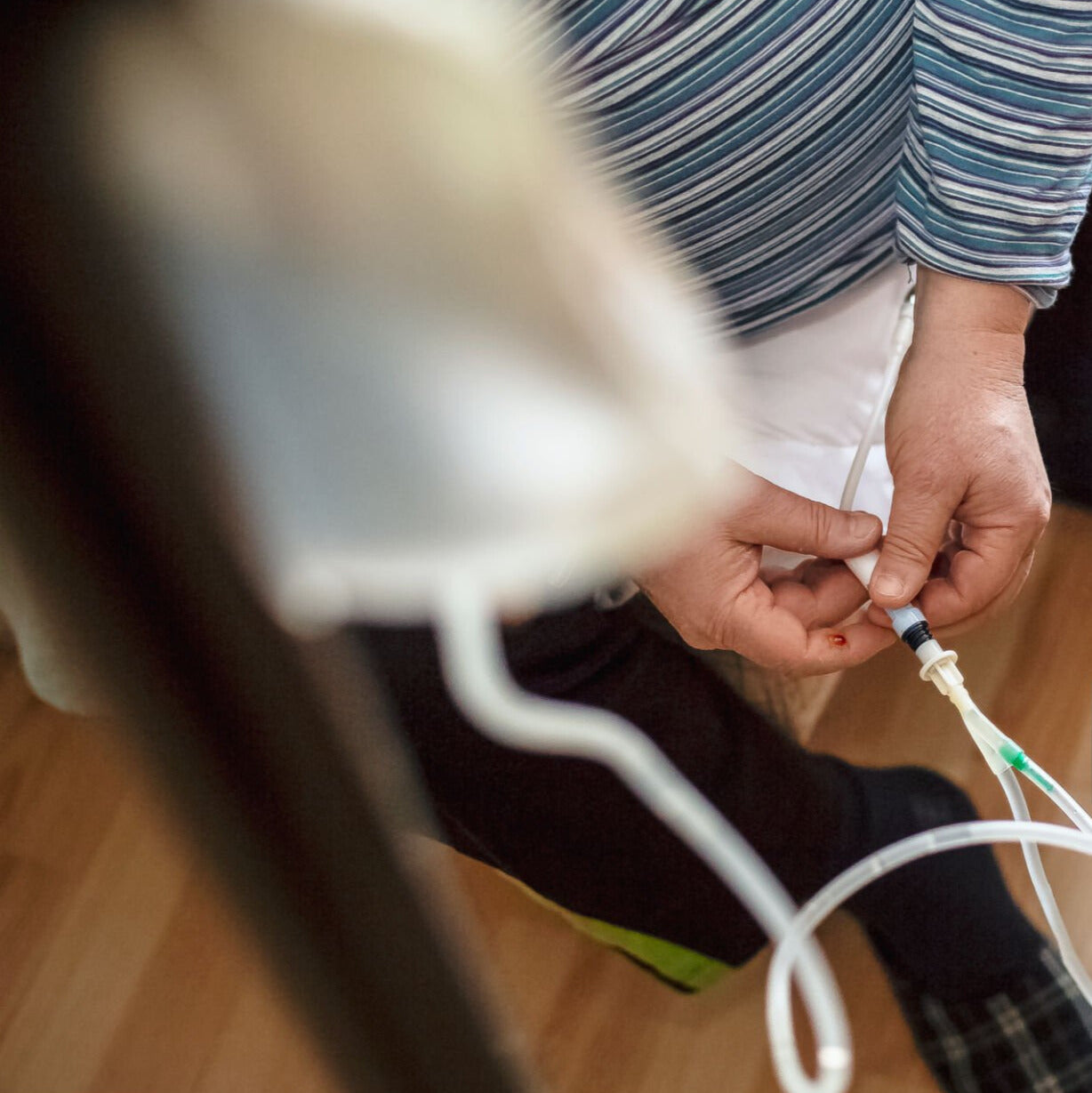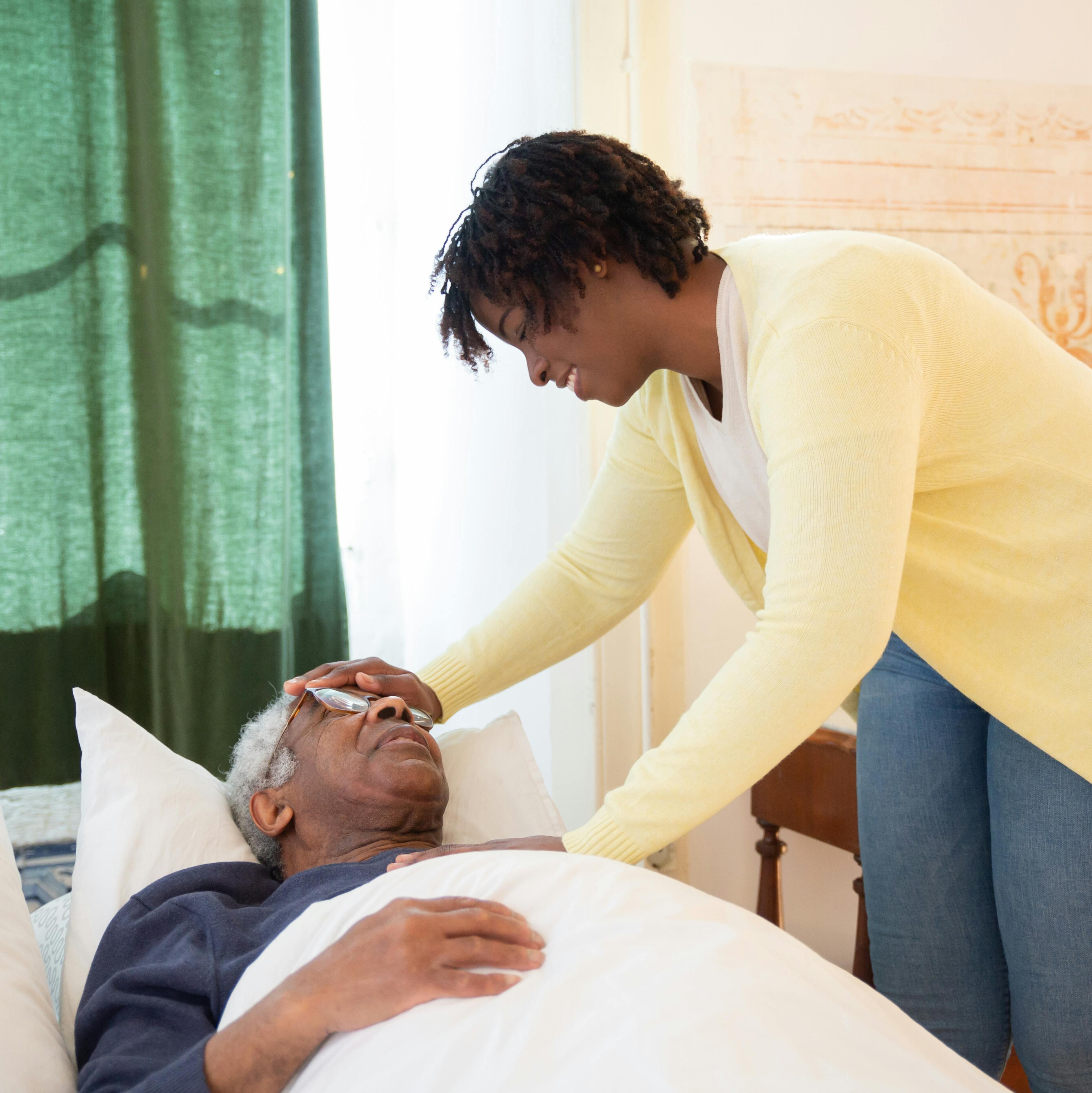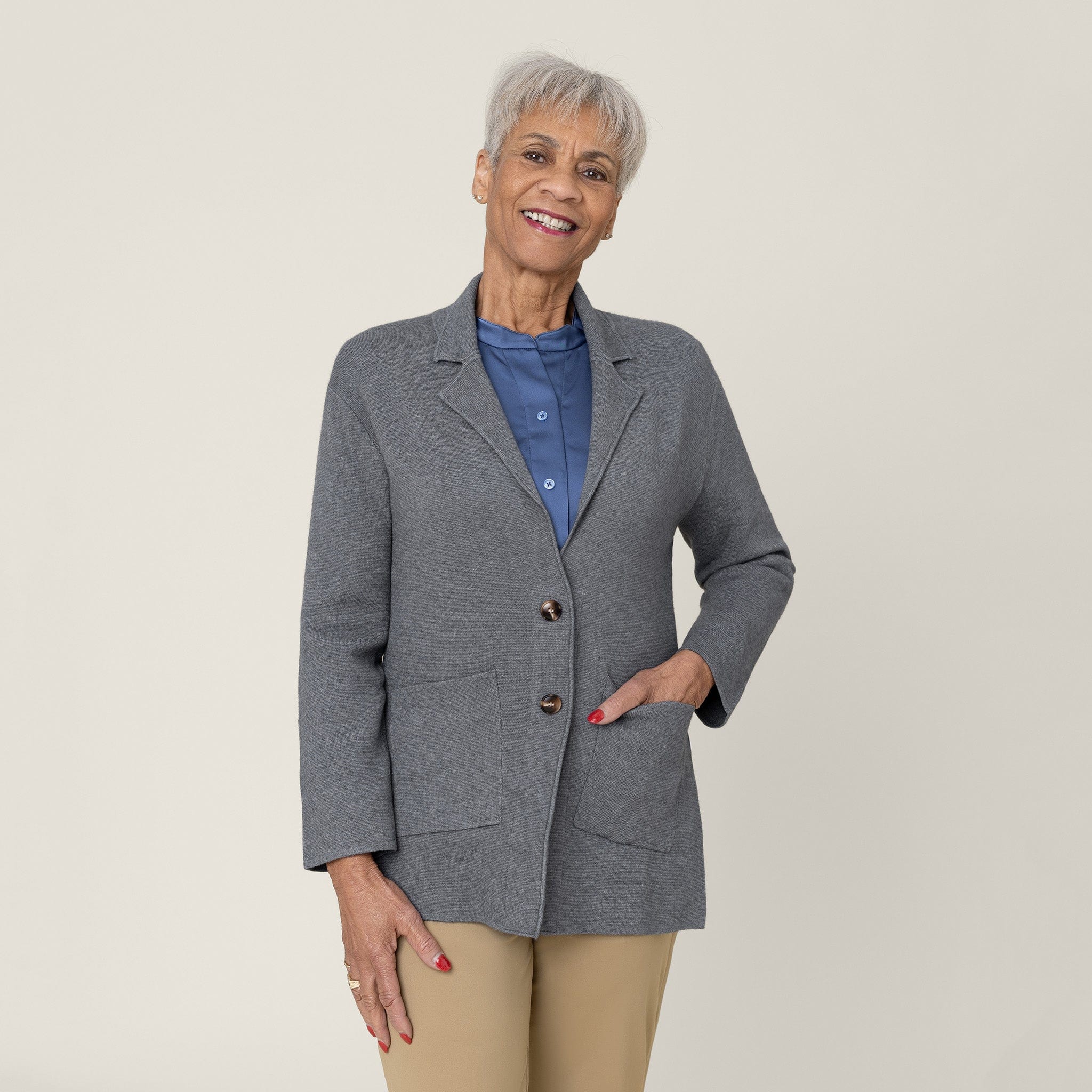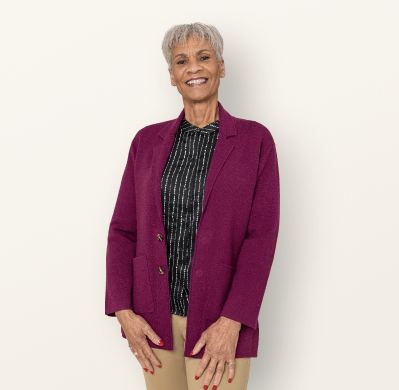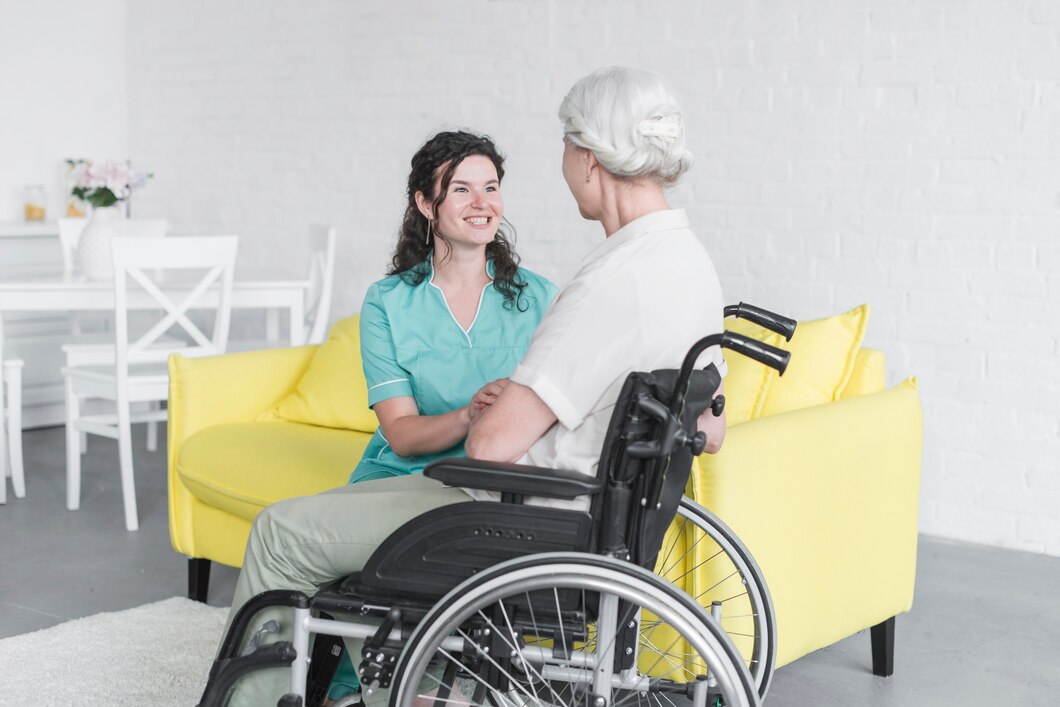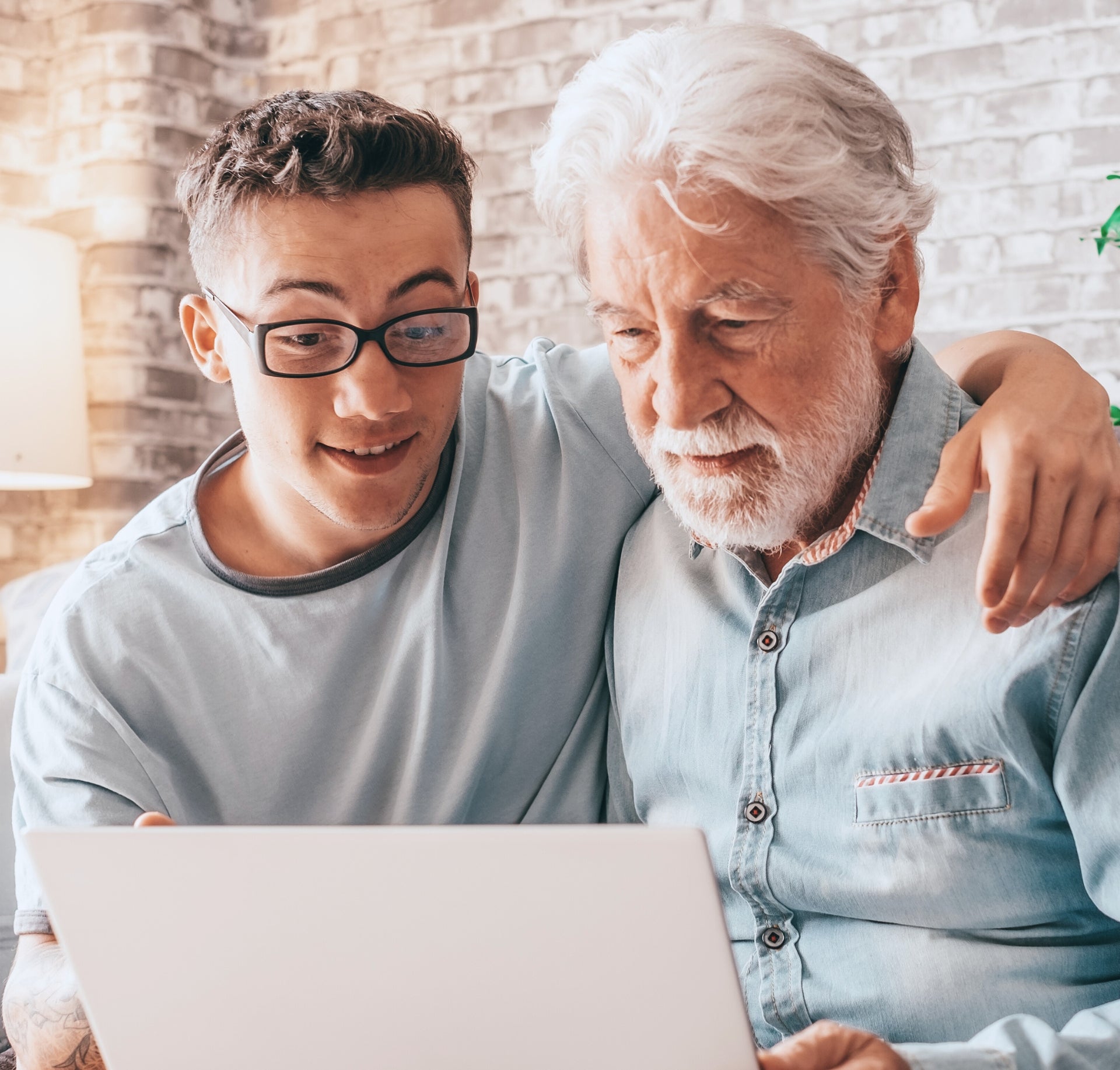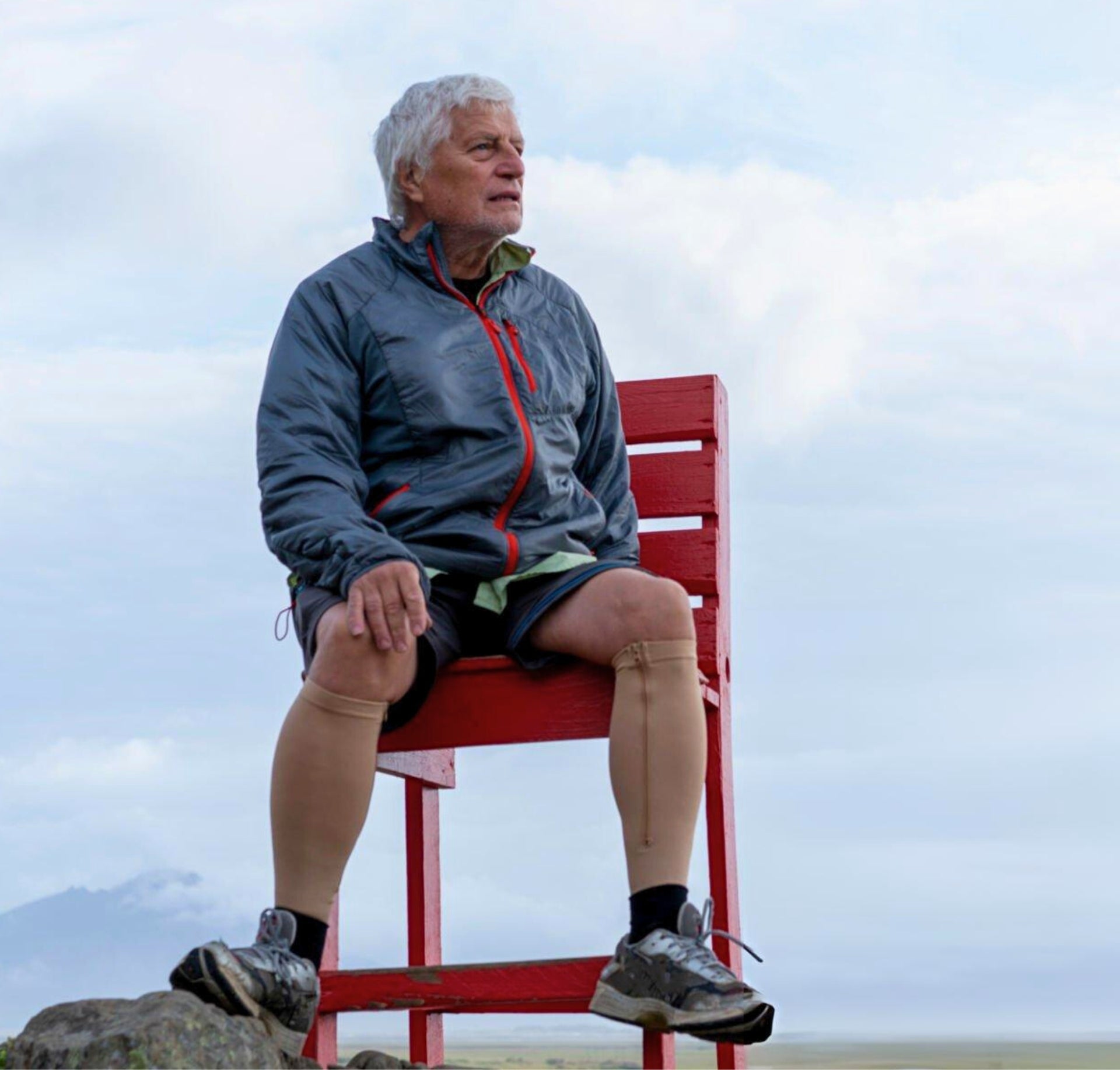This is the third part of our conversation with Janice Swink, the spunky music-loving mom of two, who lives with dementia. In the final portion of our talk, Janice shares with us what life is like with her family, her thoughts on death, and important advice for family and professional caregivers.
You can view the first two parts of our conversation here. Part 1 Part 2

Ben: It sounds like your husband has his hands full. He must be must be a pretty amazing person, too. How did you two meet and what’s life been like together?
Janice: We met on the dating site Plenty of Fish. He was so sweet; he really was genuine. I could tell that. And he says he knew that night that I was watching him deeply. So we dated for a year and then we got married. That was around 10 years ago. I don't know what I ever did to deserve such a super person; he takes such good care of me and everybody in the house, and I feel bad when more stuff is put on him as I lose more abilities. And I just feel really bad because I don't want to put more stuff on him. But he said he knows that I can't help it. He recently told me that had he known that I would end up with dementia when we first started dating, that he would have still married me.
Ben: Does he have a full time job on top of providing care?
Janice: Caregiving is a full time job because he also cares for our 20 year old who has autism and is actually paid through a special program here in Kentucky. He gets no compensation for caring for me and my brother, even though that in itself is a fulltime job. So many other caregivers have to quit work and move to smaller homes in order to care for their loved ones. When you're diagnosed with dementia, a lot friends walk away. So a lot of family caregivers feel like they're caught in this void, where the only people they see are those they care for. And their health gets worse because they don't get any relief. There's no one to let them go out of the house, go spend the day to themselves. It's really a bad situation. And I don't think the world realizes how bad it is.
Ben: How are your children coping and managing with your diagnosis?
Janice: Our 22 year old doesn't want to talk about it. He kind of has always kept his feelings inside. Our 20 year old, who's on the autism spectrum, he's a mama's boy. So he doesn't really like to talk about it either. But we have sat them both down and talked to them about it. I explained to them that their mom can't remember a lot of things. My youngest can get a little upset if I don't remember something and I've told him, “You know, I'm sorry, I can't remember. You probably did tell me.”
We have talked about what will happen when I pass. I plan on being cremated and we had a discussion about it. Are they ok if my remains are scattered in the memory garden at the VA cemetery? Or do they want me housed in mausoleum where my name will be there? Our youngest said he wants me in the mausoleum so he can see my name. That's important to him to be able to see my name and know that that's where I'm at. Eric is veteran, so he's going to be cremated eventually too and will be put there together.
Ben: Do you think about death often?
Janice: Lately I do think about it, because of the changes taking place with me are increasing. And from what I've read, it's not typical in FTD to have a big memory loss - that's more Alzheimer's. But people with FTD who do have memory issues are usually in the late stages. So. It's like, OK, I'm here, I'm in the later stages, but each person is so different. We can't all be lumped together. I have friends who have been going on 15 years since they were diagnosed and I have had friends that died within a year of being diagnosed. So it's not something that we really know. They just give us that range of five to eight years, because that's the typical window. It could be sooner or could be longer.
My doctor even told me to make my bucket list and go do as many things as I can while I can. Well, unfortunately, that takes money. And most people living with this don't have the money to do that stuff. We have to save it for medication, other healthcare stuff, and for my family.
Ben: What has this past year been like for you? You’ve been living with a significant diagnosis in the middle of a lockdown and pandemic.
Janice: All five in our household got COVID around Thanksgiving. We’re all fine now but it was not easy. I used to go out every week to get some exercise and to socialize -- I'm a hugger -- love to hug people. I would go up to strangers and ask if they needed hug. So that's been hard on me not to be able to do that because I want to hug people so much.
Most of my doctor's appointment happened via tele-health. I would go see my family doctor though, to have blood-work done every three months because I'm diabetic and on medication for that. My family doctor really pushed me to get vaccine. I got the first shot so far.
It actually affected me to not be able to give the hug, and I stayed tired for longer. And I usually just stay home because I don't like to be in crowds anymore. It's so overwhelming to go shopping. I just cannot look through stuff. I lose my balance and focus, and get overwhelmed.
Ben: What sort of advice would you give to people who are reading this who might have a family member with dementia or Alzheimer’s as begin this journey?
Janice: Just to try to remember that we're really not trying to give you a hard time; this is our reality now. We can't come back into your reality. You're going to have to try to come in to ours. It's not like something we're deliberately trying to do; we’re not trying to be difficult. Some people are very combative with dementia. They will even curse out their caregiver. You can't take stuff personally, even if it's hard not to.
Sometimes I just want to go in the backyard and scream as loud as I can. I can’t stand when people try to make me remember stuff or get frustrated with me. I know what’s happening to me, that doesn’t mean I can stop it.
I do want to address one thing with caregivers, and that's the bathing situation. The shower to me is like pins and needles going into my skin. I hate it. So I got some no-rinse body wash and so far I've been able to bathe with that in our bathroom.
I shampoo my hair in the kitchen sink now. It's just something about how the water feels on my skin. One time I was taking a shower and a shampoo, before I used the kitchen sink, and I got out of the tub and realized that I had forgotten to rinse my hair. And I could not figure out how to turn the shower back on. I had to call for Eric to help me clean off. That stuff just comes from out of nowhere.
People say that I'm fortunate that I can still communicate and know what's going on. And I'm like, I don't know if that's a blessing to know what I’m going through or if it would be better if I didn't know. I feel like I'm losing my mind, which I really am, but it's like how can I know that it’s happening while not knowing how to turn on a shower? It’s mentally, physically draining; it's just something that affects my whole being.
Some moments I feel totally fine, like now, and then five minutes later, I can't comprehend anything. It's the ups and downs that are so hard. It's like the wildest roller coaster ride you will ever be on. And that, to me, is frustrating, and I'm sure it's frustrating to a lot of other people with dementia and it's frustrating to the caregivers because they never know which version of me they’ll get.
I would tell the caregivers that we can't come into your world, you can't make us do that. That train left the station. You're going to have to try to come into our world. Don't tell me what I need to do. Because you can't make us do something. But if you kind of suggest it, well, maybe we need to do things that don't come out as strong.











